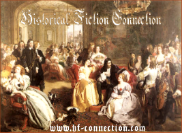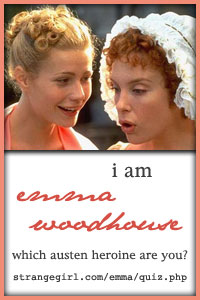2 roses

I love all things Arthurian and when I saw this book was to be released I absolutely couldn't wait to get my hands on it. I always love reading different takes on the legend. Let me say that this book takes the story in a totally different direction; not bad, just very different. There is enough of the known Arthur story mixed in so you know what you are reading about and its not completely new, but there are many things that really differ from what most readers are used to when it comes to this story. In this book Gwenhwyfar is the 3rd daughter of a King in the West of England. Even though she seems to have the power of the "sight" (the magic part of this story) she trains to be a warrior and becomes one of her father's war chiefs. Her prowess earns her the nickname the "White Spirit," given to her by the Saxons. At one point she is even able to make friends with a monk close to Arthur, despite her pagan beliefs. She loves the life even though, once she meets Lancelin (Lancelot), she begins to think that maybe it would have been better to do something more womanly. Eventually the "Ladies" call on Gwen to wed King Arthur. She will be his third queen by that name (the first two having died). She is reluctant but realizes that this is something she has to do. Once married she is quite unhappy, hating loosing her freedom. The story really starts to pick up and hurry to its conclusion when she is abducted by Medraut (Mordred) and kept prisoner for several months while her evil younger sister Gwenhwyfach pretends to be Gwen. She is able to escape and hides out with Lancelin for several days until Medraut manages to arrange it so Arthur sees that she has been unfaithful. After being taken prisoner the battle between Arthur and his son begins, the two are both killed, and Gwen is left with the monks, having to decide what her future will hold now that she is truly free.
This book is unlike any other book about King Arthur that I've ever read before. I can't say that I didn't like it but it just fell flat for me. There were things briefly mentioned that could have been interesting if the author had expanded on them but for the most part, nothing important or interesting really seemed to happen. It almost seems as if the author tried to incorporate many known legends of Arthur while at the same time trying to change the story up completely. There is magic that is connected to the old, pagan ways mentioned throughout the story but there is never really that much detail given about what it really is or what they can really do. Gwenhwyfar and Arthur don't marry until almost the end of the story and she is not his true love and he really doesn't seem to want much to do with her once they're married. She is also his third queen and was raised as a warrior to boot! We don't really see much of Arthur throughout the novel and I never got a feel for what type of person the author wanted him to be. As for Gwen, I didn't dislike her, I just didn't find her that interesting. The idea that she was a warrior and his third queen was interesting but as a whole it wasn't written in a way that kept my attention. The Merlin is mentioned in the story and he shows up briefly but I am still confused as to his role in everything. There were lots of unanswered questions that really irritated me, especially when it came to Merlin: did he have anything to do with the death of Gwen's mother, what did he give the bratty little sister in that box, why did Morgause want to foster Gwenhwyfach so badly, etc, etc. If these ideas had been expanded it would have made for more interesting reading. Gwen's little sister, Gwenhwfach is such an annoying, irritating, selfish, evil little thing that I wanted to drown her within a few pages. I knew she would show up at the end, helping Medraut in his evil plans because she was so jealous of her older sister. The other characters in the story, even Medraut and Lancelin, are not very interesting and they almost didn't need to be in there, except for the fact that Medraut had to fight his father at the end. At the end of the story we are left with the usual characters dead, Gwen's sister has drowned herself, and Gwen herself is left with the monks to decide what she wants to do with the rest of her life. We are given the impression that she is going to try to help form a bridge between the old, pagan ways and the Christians.
Does this review seem a bit chaotic? Well, that is kind of how the book felt to me: lots of bits and pieces thrown in together, minimal details in places where more would have really helped the story, too much detail in areas where it wasn't needed, characters that weren't really that interesting. It had potential and there were parts that were interesting but as a whole, it just didn't do it for me. I am glad I checked it out of the library instead of purchasing it. I would recommend this to die hard lovers of anything Arthurian but just be warned that it is different. My favorite telling of the story is still Marion Zimmer Bradley's The Mists of Avalon, which is told from female perspectives as well.























Thanks for the review. I am looking for a good Arthurian book to read for a challenge I am in. I think I will pass on this one, but might check out The Mists of Avalon, thanks!
ReplyDeleteI think I'll pass on this one, too, but I keep wondering if I ought to read The Mists of Avalon. Have you posted a review of it? Have you read Helen Hollick's Pendragon trilogy?
ReplyDelete